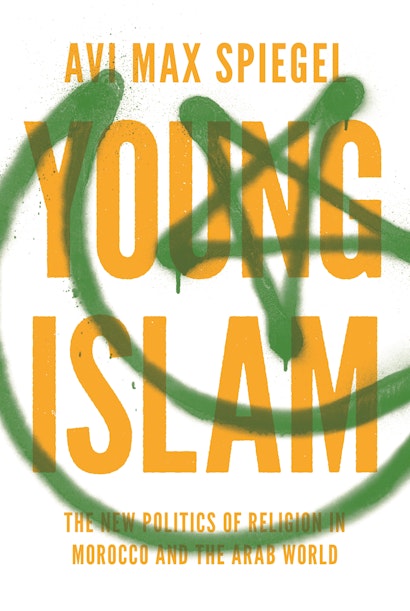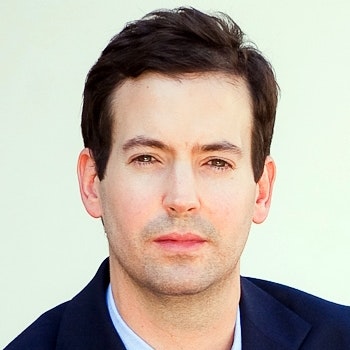Today, two-thirds of all Arab Muslims are under the age of thirty. Young Islam takes readers inside the evolving competition for their support—a competition not simply between Islamism and the secular world, but between different and often conflicting visions of Islam itself.
Drawing on extensive ethnographic research among rank-and-file activists in Morocco, Avi Spiegel shows how Islamist movements are encountering opposition from an unexpected source—each other. In vivid and compelling detail, he describes the conflicts that arise as Islamist groups vie with one another for new recruits, and the unprecedented fragmentation that occurs as members wrangle over a shared urbanized base. Looking carefully at how political Islam is lived, expressed, and understood by young people, Spiegel moves beyond the top-down focus of current research. Instead, he makes the compelling case that Islamist actors are shaped more by their relationships to each other than by their relationships to the state or even to religious ideology. By focusing not only on the texts of aging elites but also on the voices of diverse and sophisticated Muslim youths, Spiegel exposes the shifting and contested nature of Islamist movements today—movements that are being reimagined from the bottom up by young Islam.
The first book to shed light on this new and uncharted era of Islamist pluralism in the Middle East and North Africa, Young Islam uncovers the rivalries that are redefining the next generation of political Islam.
Awards and Recognition
- Winner of a Washington Post Abu Aardvark 2015 Middle East Book Award
- Winner of the 2017 Hubert Morken Award for Best Book, Religion and Politics Section of the American Political Science Association
- Co-Winner of the 2016 Book Award, Religion and International Relations Section, International Studies Association
"This book offers a fascinating look at the competition between different Islamist groups in Morocco. Spiegel presents a rich political narrative, but also a nicely textured look at the lived experience of Islamist political participation by young Moroccans."—Marc Lynch, WashingtonPost.com's Monkey Cage blog
"Spiegel is that rare creature, an academic who presents serious fieldwork in a totally accessible form. This book is therefore not only a valuable contribution to understanding Moroccan youth today but has relevance to the entire Islamic world."—Jonathan Fryer, Interlib
"[E]legantly written. . . . Instead of simplistic dichotomies between secularism and its Islamist critics, readers discover a range of perspectives. The author is conversant with sophisticated scholarly debates, but the book is nonetheless engaging and readable."—Choice
"Spiegel breaks new ground in the study of Islamic political parties by moving beyond the framework of opposition-state dynamics that focus on either repression or inclusion/exclusion dynamics of Islamic political participation. Instead, he focuses upon the interrelationship, competition, and coevolution of Islamic parties and movements with one another and the ramifications these processes hold for Islamic activism and the future of political Islam. . . . A unique contribution to the field and to the study of Islamic political movements within an ever increasingly complex environment."—Payam Mohseni, Journal of Church and State
"An impressive ethnographic account which breaks successfully with simplified binary perceptions of Islamism. For all scholars interested in Islamist organizations and Arab demography, the author delivers a well-informed micro-analysis of contemporary Islamism in North Africa and opens a usually locked door into the real life of young Islamists."—Tanja Eschenauer, Democratization
"Written in an engaging style."—Lawrence Rosen, Bustan: The Middle East Book Review
"Finally, an examination of Islamism that eschews the abstract generalizations and simple dichotomies that plague our conversations about political Islam. By presenting Islamism as a dynamic and complex amalgamation of competing organizations and orientations, Spiegel provides a fascinating glimpse into the future of the Middle East."—Reza Aslan, author of No god but God and Zealot: The Life and Times of Jesus of Nazareth
"Young Islam is destined to become the classic work on competition between Islamists—a topic of major importance in our changing world. Required reading for experts, students, and anyone who wants to understand the future of Islam worldwide."—Noah Feldman, author of The Fall and Rise of the Islamic State
"Young Islam is a wonderful ethnographic account of the struggles within Islamist movements that has far broader implications for the way we conceive the driving forces behind the rise and behavior of these movements. Although young Islamists in Morocco are the focal point of this study, the book provides a way of thinking about Islamist struggles elsewhere. It's worth reading."—Shibley Telhami, author of The World through Arab Eyes: Arab Public Opinion and the Reshaping of the Middle East
"Young Islam is a fascinating and fresh account of the changing landscape of political Islam in Morocco. Spiegel, drawing on years of fieldwork and unprecedented access, moves away from easy characterizations and offers an intimate portrayal of the lives of young Moroccan Islamists as they're actually lived."—Shadi Hamid, author of Temptations of Power: Islamists and Illiberal Democracy in a New Middle East
"What makes Spiegel's book so distinctive and important is that it provides a rich and in-depth account of how those at the bottom of the Islamist pyramid—Muslim youth—are attracted to and participate in Islamic movements. Young Islam is a work of exceptional scholarship and impressive research that will force students and scholars of Islamic politics to rethink their assumptions. It is a breath of intellectual fresh air."—John P. Entelis, Fordham University
"Spiegel asks timely questions about the conclusions that have been drawn about Islamists in Morocco and the Arab world more broadly. Using an enormous amount of ethnographic analysis and a very sensitive appreciation of Moroccan history and culture, he offers a sophisticated corrective to the stereotypes. This is a significant achievement and it has important policy ramifications."—Clark B. Lombardi, University of Washington School of Law


